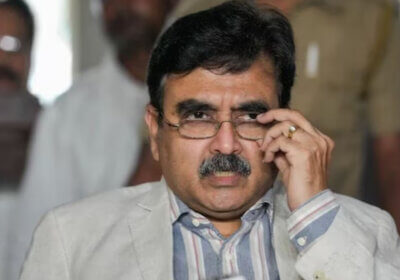Bihar CM Nitish Kumar has announced an increase in the reservation quota after the caste census of the state is doing the political rounds since the state government conducted the caste based survey. The BJP ruled central govt is resisting this caste based census narrative from the opposition leaders. Primary opposition leader Rahul Gandhi threw this caste based census issue into the country’s political arena by announcing that when Congress party comes to power they will conduct a thorough caste based survey throughout the country to identify the right composition of the society and using that data to formulate ground level policies for SC, ST, OBC, and other marginalized sections of the population.
Related Read | Modi Govt Doesn’t Have The Courage To Do Caste Census : Rahul Gandhi
In the recent blow to BJP’s resistance against caste based census, Nitish Kumar made a big announcement on caste based reservations. Read the report below.
1. Bihar Chief Minister’s Proposal to Increase Reservations
Bihar Chief Minister Nitish Kumar made a significant announcement on Tuesday, suggesting an increase in reservations for Other Backward Classes (OBC) in the state from the existing 50% to 65%. This proposal followed the presentation of a comprehensive caste survey report in the state assembly.
2. Proposed Changes in Reservation Quotas
During the assembly session, CM Kumar expressed his support for elevating the quotas for Scheduled Castes (SC), Scheduled Tribes (ST), and OBCs in Bihar. He emphasized the need to raise the OBC reservation from 50% to 65% and recommended increasing the combined quota for SCs and STs from 17% to 22%.
3. Insights from the Caste Survey Report
The recently released caste survey report revealed crucial data about Bihar’s population. It highlighted that over a third of Bihar’s families, approximately 34.13%, were living in poverty, surviving on a monthly income of ₹6,000 or less. The report also identified significant poverty rates among backward classes, Dalits, and tribals.
4. Impact on Bihar’s Population and Migration Trends
Additionally, the survey disclosed that more than 50 lakh Biharis had migrated out of the state in search of employment and better educational opportunities. Out of these, 46 lakhs were working in other states, and 2.17 lakhs had ventured abroad. Furthermore, 5.52 lakhs were pursuing education in other states, and approximately 27,000 were studying abroad.
5. Central Government’s Response to Caste Census Reluctance
In the absence of a comprehensive caste census conducted by the central government, the Nitish Kumar administration took the initiative to conduct the survey independently. This move was prompted by the reluctance of the central government to conduct a caste census, leading Bihar’s government to commission its study. The preliminary findings of this survey were instrumental in shaping the Chief Minister’s proposal to increase reservations for OBCs and address the socioeconomic disparities prevalent in the state.
6. Social Implications of Proposed Changes
The proposed increase in reservation quotas signifies a proactive step by the Bihar government to bridge the social and economic gaps among different communities. By raising the quotas for OBCs, SCs, and STs, the government aims to provide enhanced opportunities for education, employment, and overall social welfare. These measures align with the broader national objective of achieving social equity and ensuring that marginalized communities have access to resources and opportunities that can uplift their living standards.
7. Challenges and Future Initiatives
While the proposed changes have garnered attention and sparked discussions, there are challenges that the government might face in implementing these alterations. Consultations with various stakeholders, community leaders, and experts are imperative to address concerns and ensure a smooth transition. Additionally, the government needs to focus on skill development programs, education initiatives, and job creation to support the increased reservation quotas effectively.
Looking ahead, the Bihar government is expected to roll out detailed plans and initiatives aimed at implementing the proposed changes effectively. These initiatives might include awareness campaigns, educational reforms, and skill enhancement programs tailored to uplift the backward classes, Dalits, and tribals.
8. Conclusion: A Step Towards Social Inclusivity
In summary, Chief Minister Nitish Kumar’s proposal to increase reservations for OBCs, SCs, and STs in Bihar reflects a significant step towards fostering social inclusivity and reducing disparities. The insights from the caste survey report have played a pivotal role in shaping these proposals, emphasizing the need for targeted interventions to uplift marginalized communities. As the government moves forward with its plans, it is crucial to maintain transparency, encourage public participation, and prioritize the holistic development of all sections of society. By doing so, Bihar can pave the way for a more equitable and prosperous future for its residents.
Related Read | Congress Says Yes To Nitish Kumar’s Opposition Meet























Leave a Reply